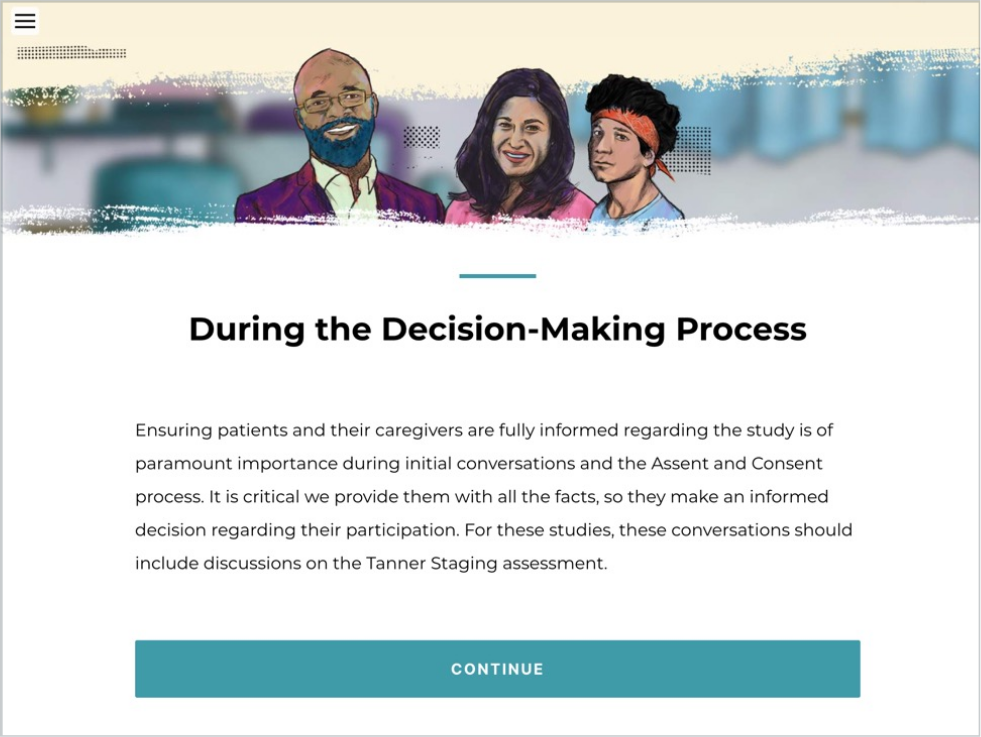Details
Client: Confidential
Year: March 2023
Creative Direction: Emily Gregoire
Design & Illustration: Emily Gregoire, Gabriel Macchiavello
Animation: Emily Gregoire
eLearning Development: Emily Gregoire, Flor Dobler
Objectives: To boost the knowledge, confidence, and comfort of the psychiatrists participating in the clinical trial who have to complete the Tanner Staging Assessment
Study population: Pediatric patients with Schizophrenia or Bipolar 1 Disorder
Deliverables: 1 Articulate Rise eLearning and 2 animated videos on how to perform the relevant assessments and measurements accurately and consistently
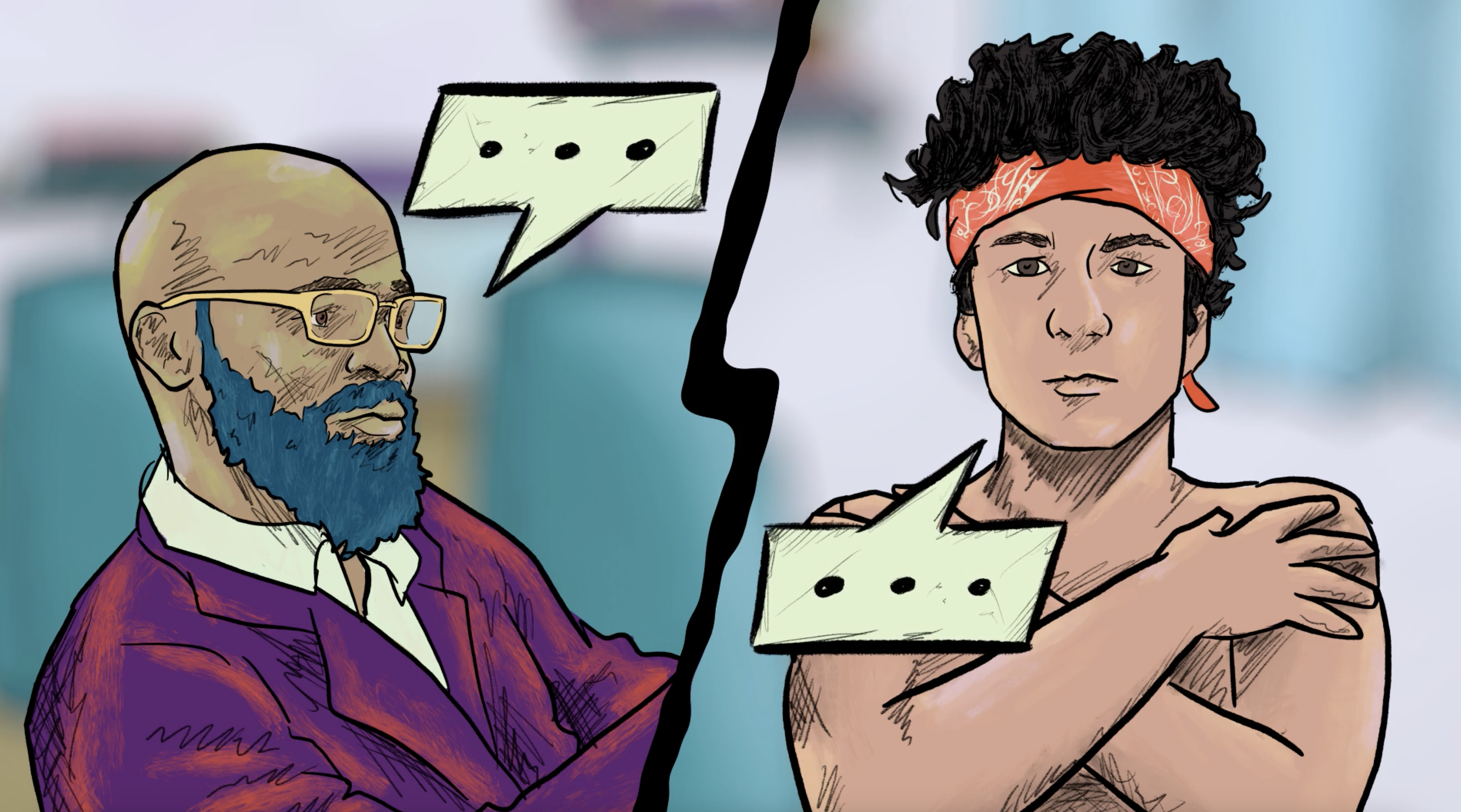
Challenge
The Tanner Staging Assessment is used to document and track the development of secondary sex characteristics of children during puberty. It is usually performed by PCPs, but in this study, the psychiatrists at the sites are expected to perform the assessment. Many psychiatrists are not used to conducting these types of assessments, especially ones where the patients have to disrobe.
This can create uneasiness in both the participant and the provider, which can impact participant satisfaction with the study.
Additionally, since the assessment is based on visual inspections rather than measurements, this can lead to inconsistent scoring across sites, leading to inaccurate clinical trial data which could put the trial at risk.


Discovery & Ideation
Our team believes in creating training materials anchored in behavioral science to promote behavior change, and that carries into the visual direction as well as the strategy and content.
For this project, we worked closely with our medical and behavioral strategy team to understand schizophrenia and bipolar I disorder in kids and intentionally incorporate those insights into the look and feel of the final deliverables.
Although our target audience was healthcare professionals, I used the visual style to emphasize the study population’s experience to build connection and empathy from the HCP to the people they will be treating. The visual style is also uncommon in healthcare, which would grab attention more easily.
The goal was for the empathetic and unique art direction to improve engagement with the content itself and promotes longer-term retention of that information.
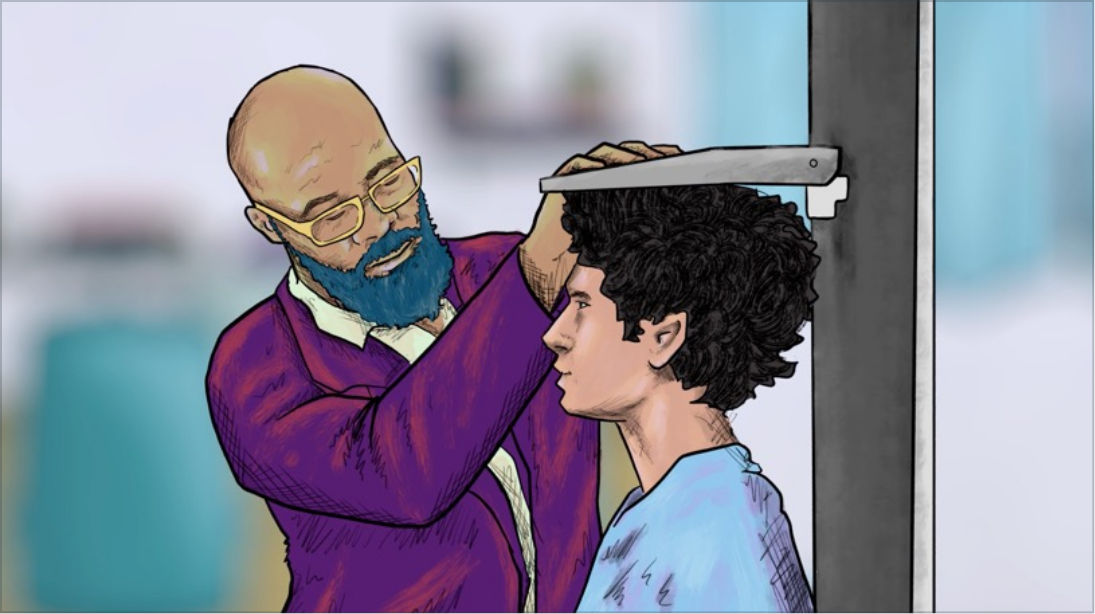
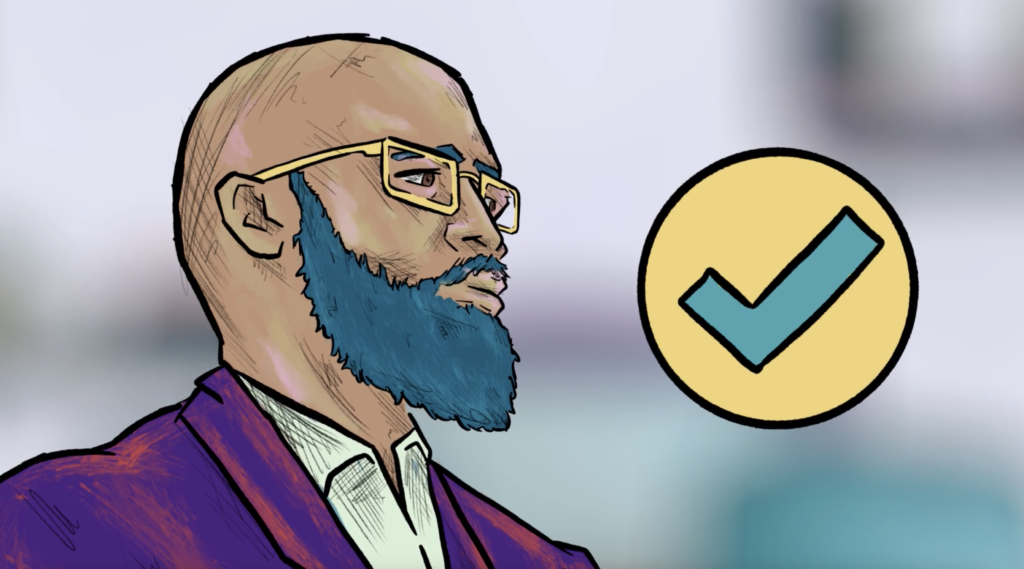
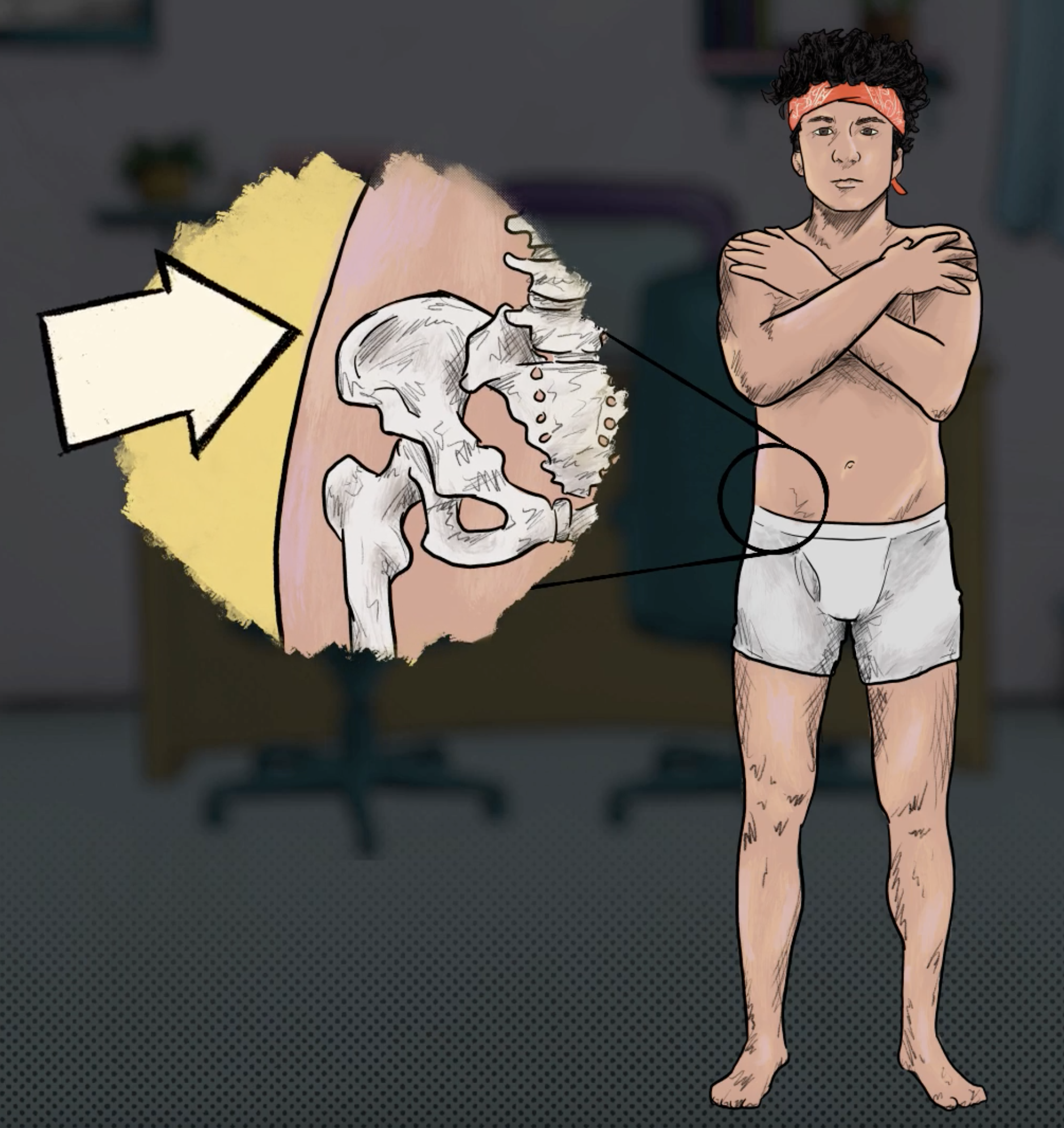
Results
The sketchy illustration style we landed on evoked a sense of unrest and change and movement, which represents the aesthetic and mindset of teens and pre-teens in general as well as those diagnosed with schizophrenia or bipolar 1 disorder.
The eLearning module and videos have become cornerstone examples in our team’s asset catalog and have been prominently featured in numerous business development proposals.
The exploration and discovery process, along with the behavioral science-backed rationale for the visual direction, has set a gold standard for art direction within our design team.

Like what you see?
Let’s not let this moment slip away. Who knows what we can create together!

